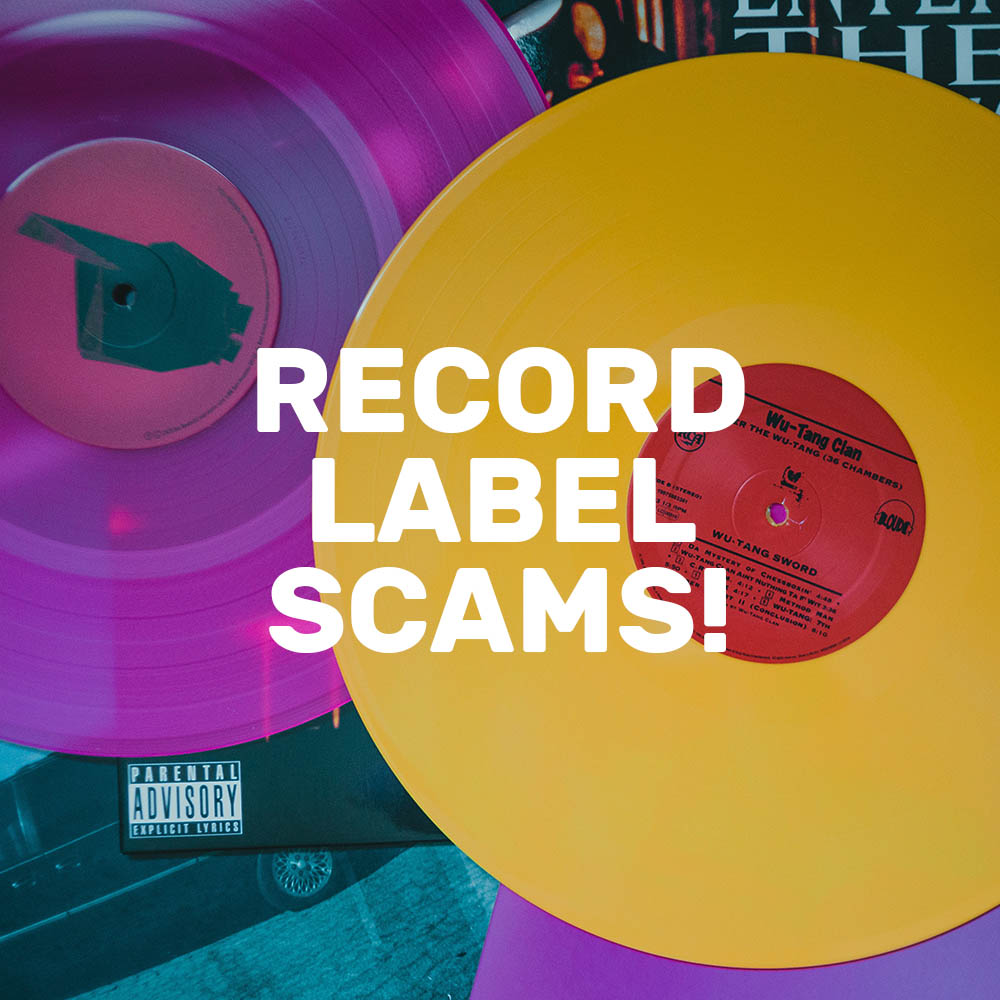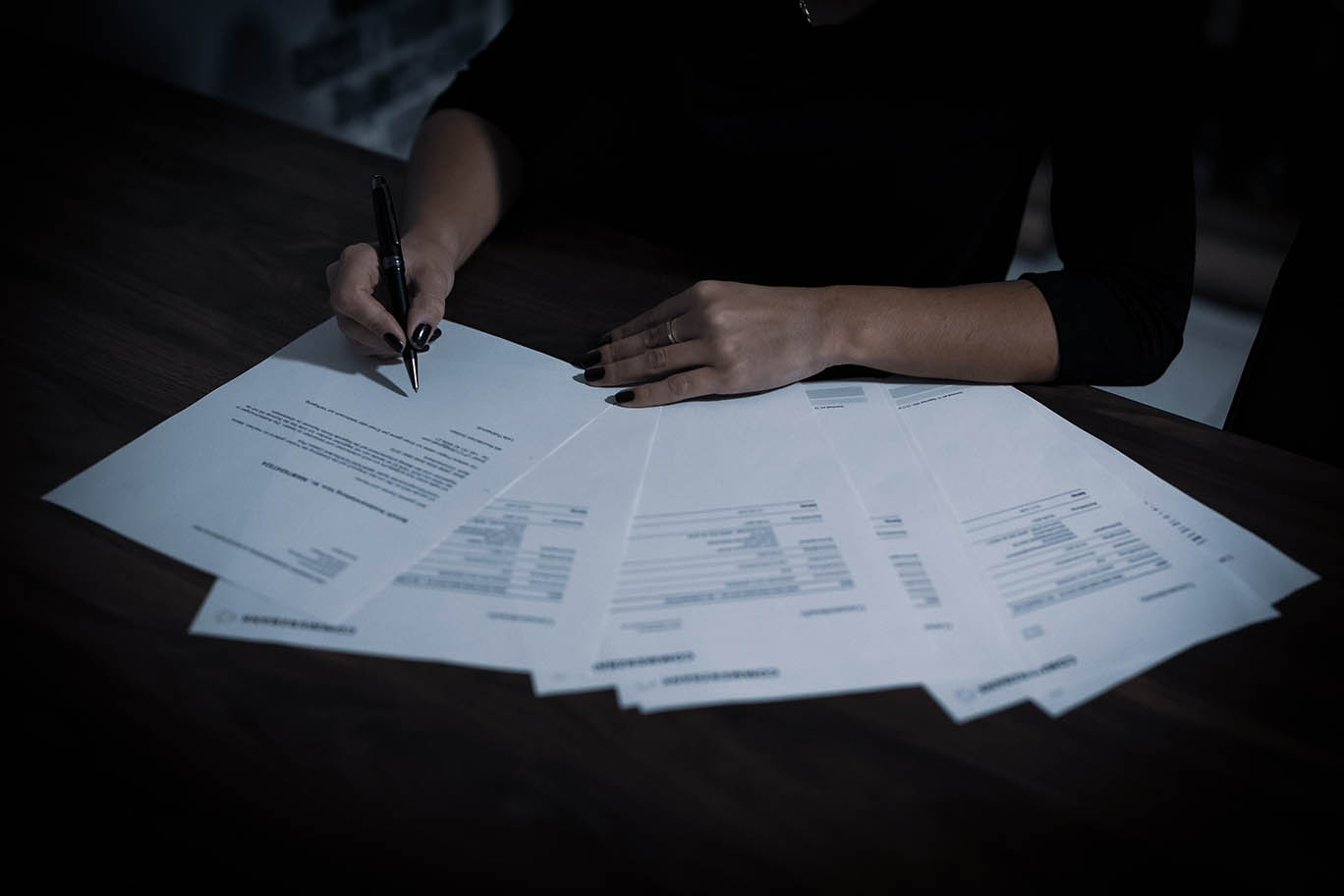Record Label Scams: How To Spot Fake Record Labels

Record Label Scams: How To Spot Fake Record Labels
Record producers beware, there are sharks in the water! Unfortunately, there are many fake record labels designed to extract money from you. Make sure you know how to spot a fake record label by following this essential guide to record label scams.
So, you’ve just created some amazing music that the world needs to hear! Your next step will be either self-releasing your track or sending it to a record label.
Click here for a DJs guide to releasing your music
If you’re going the record label route, you need to extensively research any label you want to send a demo to. You should look out for the red flags revealed in this article! Make sure you bookmark this page and share it with your music producer friends. As a community we want to stamp out these fraudulent record labels.
We want you to be very careful when choosing a label to work with because there are extraordinary scams that may at first glance seem legitimate! We’ve compiled this exclusive guide to help new music producers avoid being scammed by fake record labels.
With the ever-increasing popularity of electronic music more and more DJs turn their hand to music production. Once you’ve learned how to produce you’ll naturally want to release your music and being signed to a record label is exciting for a budding producer. The problem here is that there is a strong demand by new producers searching for record labels. Some nasty individuals are exploiting this demand by creating fake record labels purely to extract money from you in cunning ways. They prey on you naivety and cruelly hunt down newbies just like you!
There are three main scams circulating in the dark and murky world of fake record labels. Here I attempt to demystify these scams to help protect your wallet and help you release music stress-free.
1. Minimum sales scam
A common scam that preys on new producers is a record label that will sign your music but include a clause in the contract where you don’t see any money until a minimum sales threshold in reached. While a small threshold is normal and acceptable scam labels will set the bar high. These thresholds can be hundreds of pounds, euros or dollars. They claim that this is the cost they incur to release the music but realistically it costs very little to release music, just a small amount of admin time.
The way the scam works is that they know hardly any producers ever reach the threshold, therefore they keep 100% off all the proceeds of all the producers on their label and rarely pay out. They might make under 100 pounds, euros or dollars per release but with thousands of releases this can really add up for their label.
Red flags to help you spot this scam:
The label accepts almost any track without question: Normally record labels will only release music the fits with their sound and audience. They will set a high bar and only accept a small percentage of demos for release.
The label has signed thousands of tracks: If you can see they have signed thousands of tracks and release weekly or even daily this is red flag. You’ll just be another drop in the ocean.
The label only seems to release small artists or new producers: If the label has no big artists and only release newbie promoters this can be a bad sign.
The label has a poor brand image with little investment in artwork and promotion or content: If they are using this scam they don’t want to spend any money on expensive artwork and will use templates and stock images. They won’t waste their time promoting the music and will instead tell you to promote the release on your own.
The contract states an unrealistic minimum threshold or exorbitant costs way over industry-standards: Look out for minimum cost thresholds and ask them to clearly explain any hidden costs or release costs and how revenue is distributed and when. They should know the answers if they are legit. They might sweeten this pill with promises of promoting your music to give the perception of added value but have little evidence of doing this for other artists.
This type of record label accepts any music, any style and producer. The release will be quite random with varying quality of music. This is because they don’t care about the music or the label, it’s just a machine to extract money from you.
2. Pay to produce, release or promote
Another common scam that fake record labels often use is charging the artist for inflated services. The most common is a mastering fee but some more complex scams will add other services into the contract including artwork, coaching or promotion that they force you to pay for, in full or part.
The most elaborate one we uncovered recently involved a cunning model in which the ‘label’ states they will cover 30% off the production fees and the artist 70%. However, on closer inspection it was obvious they had inflated the costs of the services they are selling, so really the artist is paying 100% of the costs and enough to cover a hefty profit margin for the label. The label also profits from a percentage of any sales.
In this scam they are just charging you to create music with them, so it’s a production service under another guise and not a legitimate record label. Avoid these types of labels.
Red flags to help you spot this scam:
The label tries to sell you services or products: No decent record label will force you to pay for services or coaching. They might give you the option to choose some extras of services but if they are a good label they won’t. The best labels will instead pay for any costs themselves because they are confident they will recoup the money on sales.
The label is not interested in promotion or has a very limited promotion network: They often just want to take your money and run. Labels that don’t offer ongoing promotion are not interested in sales, but rather the initial extraction your money. Once they have got you to sign and pay, they’ll minimise contact.
They want to work remotely: Scam labels using this service model will minimise costs by outsourcing production services to suppliers abroad and try and limit in-person services. They want to make a margin on the production services they are selling you.
They tell you the music industry works this way: They might try and pull the wool over your eyes by telling you that this is the way the music industry works. It’s not, this is scam.
Non-Existent A&R Process: A genuine record label will have an Artist and Repertoire (A&R) person or department. The A&R process is where they evaluate your suitability for their record label and chances at commercial success and marketability. Scam labels will skip this step and accept anyone who sends in a demo because they just want you as a customer.
3. Unrealistic contracts
Always read the fine print. Some labels will encourage you to sign a contract giving away too many rights, percentages or intellectual property. Common clauses in contracts from scam record labels will include excessive commission rates, perpetual ownership of your masters, or unclear terms regarding royalty payments.

Red flags to help you spot this scam:
A lack of transparency: They might try and discourage you from reading the contract or use vague and confusing language.
They try and rush you to sign: If you get the impression they are steering you toward signing without giving you time to digest or negotiate it’s a clear red flag.
They don’t understand their own contract, terms or jargon within it: They should be able to answer any questions about the contract clearly.
The contract looks like a template: If you get the impression the contract looks like a template or looks unprofessional this can be a red flag.
The label doesn’t give you a draft contract: Professional record labels will send you a draft contract for you to review their terms well ahead of any potential signing. Labels will then give you time to react and perhaps negotiate the terms of the contract. If they don’t issue a draft or withhold access to the contract until the signing day this is a red flag.
Conclusion
Be aware that new scams are being devised every day. Look out for combinations of the above scams and let us know if you come across anything new. Remember, It’s not just your wallet that is at risk. Having an association with a scam record label will ultimately affect your reputation, in some cases this will necessitate an expensive rebrand to distance yourself from the negative a-connotations.
Save yourself money, reputation and stress by avoiding these common record label scams and by researching potential record labels before signing any contracts. Protect yourself by investigating potential record labels, artists they have worked with and their success stories. Scrutinise their contracts and consult with your peers and get legal advice before signing. Above all, trust your instincts and don’t rush into any decisions.